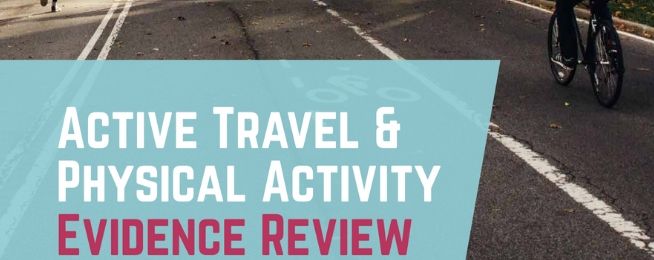There is huge, unharnessed potential for active travel to make a major contribution towards increased physical activity across society, and new study has found.
Sport England commissioned a review of the evidence that active travel, such as bike riding and walking, could contribute towards a healthy and active nation.
Overall, the review concludes that there is strong evidence for the positive impact of interventions to increase active travel, and that this in turn increases levels of physical activity.
Of the different intervention typologies the evidence was strongest (in terms of volume and robustness) for city or town-wide interventions. Each of the other intervention types reported some increases in walking and or cycling.
The findings are convincing, coming as they do from the sporting community, which has long argued, against the evidence, that increased government funding for sporting facilities resulted in a more active society.
Today, increasingly, the argument is swinging towards the importance of embedding activity into travel by increasing walking and cycling.
"All of the peer reviewed studies addressing whole town or city-wide interventions showed that interventions increased levels of cycling and walking compared to controls”, the review said.
"The evidence available for city and town wide programmes shows change at the population level.
"The review also found evidence for the positive impact of walking and cycling interventions at a more localised level. Interventions to build or improve local routes or networks report increased walking or cycling in most cases.
"There is also strong evidence of the impact of interventions in school settings. As such interventions have the potential to develop active travel habits that may be continued into adult life, we may postulate that this is a potentially important area for investment."
This comes as validation for the continued efforts of Bicycle Network's Ride2School program to ingrain active travel habits in our future generations.
The evidence for the effectiveness of workplace-based interventions was slightly more equivocal, while the evidence for the effectiveness of individualised marketing was also strong, demonstrating that once people have stated their desire to change travel behaviour, they can be encouraged to change through the provision of relatively simple information.
To realise the untapped potential of active travel, the review recommended:
- New investment into active travel prioritises town or citywide approaches, comprising an integrated and coordinated mix of interventions designed to fit the needs of place and people, leading to increased active travel at population level
- Active Travel is promoted synonymously with physical activity. This recognises active travel as a legitimate, accessible and enjoyable way to be active, and can lead to more effective local delivery
- Consistent, long-term funding with cross-government support can achieve greater continuity, coordination and effectiveness of active travel interventions, and would acknowledge the wide range of social, economic and environmental benefits of active travel.
Become our friend
Find out more about Bicycle Network and support us in making it easier for people to ride bikes.


